Security in the Black Sea area
The Romanian capital city Bucharest has recently played host to a conference on security challenges posed by the eastern flank of the North-Atlantic Alliance

Corina Cristea, 09.08.2019, 14:11
The conference once again emphasized the need for NATOs capabilities to be strengthened in the Black Sea, an area still affected by frozen conflicts and latent tensions, because any flaw, any vulnerability in the Black Sea region will have its negative effect on the structure of the Alliance as a whole.
Is the North-Atlantic Alliance prepared to face such challenges? This was the main question asked by Romanias president Klaus Iohannis during the talks. Iohannis pleaded for a unitary presence of the Alliance, which should also be a consolidated and coherent one, all along NATOs eastern flank. With details on that, here is president Iohannis himself.
Klaus Iohannis: “Security in the Black Sea area and along the eastern flank has its direct influence on Euro-Atlantic security. Any flaw, any vulnerability at the Black Sea becomes a vulnerability of the Alliance as a whole, simply inviting hostile action. Is the Alliance prepared to face such challenges? So far it has demonstrated it is, proof of that being the measures taken and implemented beginning 2014 and all through to 2016, at the summit in Warsaw, and then at the summits in Brussels, in 2017 and 2018. That is not enough though. The Black Sea area requires an articulate and coordinated approach in political and operational terms, also addressing the capabilities aimed at restoring balance and deterring hostile action.”
Romanias president Klaus Iohannis emphasized the fact that a strategic approach to that was vital. From an operational point of view, such an approach entails the permanent monitoring of regional developments, the strengthening of NATOs position and the Alliances capabilities as well as enhancing the resilience of NATOs partners, Ukraine, Georgia and the Republic of Moldova.
According to Bucharest, a unitary, consolidated and coherent presence of the Alliance, from the Baltic to the Black Sea is mandatory, so that NATO may build up an efficient position for deterrent and defense purposes. During the talks it was pointed out that the EUs increased defense capabilities are in NATOs best interest and that the programmes and operations need to be complementary.
James Appathurai, the NATO Secretary Generals Deputy Assistant for Political Affairs and Security Policy, explained that, given the current security context, NATO and the European Union need to stay even closer to one another. According to him, the process of these two entities getting closer to one another, which was caused by a deteriorating security environment because of terrorism but also because of the instability caused by Russia, is necessary for the security of all member states.
“A Europe more capable defense-wise will be able to take more responsibilities and also handle a bigger part of the shared burden. That would also be to the benefit of NATO, since the member states are owners of the capabilities they can make available to the Alliance as a whole. The close and strengthened partnership between the European Union and NATO as well as the trans-Atlantic relationship remain crucial as a means to respond to threats and security risks targeting both organizations”. This is also the official stance of the European External Action Service, which is an institution of the European Union officially launched on December 1st, 2010. Its role is to assist the European Unions High representative for foreign affairs and security policy.
In Bucharest, the European External Action Service was represented by its Assistant Secretary General Jean Christophe Belliard who emphasized the need for the European Union to take greater responsibilities as regards its own security, but on a complementary and not a competitive basis with NATO. A US expert in Transatlantic defense and energy security and also a coordinator with the Center for European Policy Analysis, Peter Doran attended the conference in Bucharest.
Specifically referring to the strengthening of the Trans-Atlantic ties, Peter Doran said that his organization dedicated its activity to a better understanding of the way the US ties with its allies can be strengthened especially here, in the Black Sea area. For the US official, there are three domains where such cooperation could be implemented. One is cooperation in the field of security and defense, then there is the field of energy, while the third domain of cooperation is what Peter Doran termed an indestructible connection, namely freedom. According to him these are the ties bringing Romania and United States closer to one another.
Romania was especially interested in security against the backdrop of the recent evolution in the region, according to the Romanian Foreign Ministry Teodor Melescanu. The Romanian official explained that it was not by chance that security was the second most important issue of Romanias presidency of the Council of the European Union after cohesion.
Melescanu went on to say that with respect to a lot of key issues in our region, for instance in the West Balkans, a strategic convergence has always existed between the activity of NATO and that of the European Union. The Romanian Foreign Affairs Minister has also added that there are a lot of precious lessons to learn regarding strategic coordination and the development of interoperability. According to him Romania has been a staunch supporter of the European Union – NATO partnership and of the Trans-Atlantic relationship as one of the main pillars of European security.






























